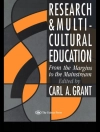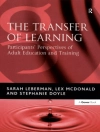`This comprehensive collection of almost 40 chapters – each written by a leading expert in the field – is the essential reference for anyone undertaking or studying qualitative research. It covers a diversity of methods and a variety of perspectives and is a very practical and informative guide for newcomers and experienced researchers alike′ –
John Scott, University of Essex
`The best ways in which to understand the issues and processes informing qualitative research is to learn from the accounts of its leading practitioners. Here they come together in what is a distinctive and wide-ranging collection that will appeal to postgraduates and social researchers in general′ – Tim May, University of Salford
`This excellent guide engages in a dialogue with a wide range of expert qualitative researchers, each of whom considers their own practice in an illuminating and challenging way. Overall, the book constitutes an authoritative survey of current methods of qualitative research data collection and analysis′ – Nigel Gilbert, University of Surrey
Learning to do good qualitative research occurs most fortuitously by seeing what researchers actually do in particular projects and by incorporating their procedures and strategies into one′s own research practice. This is one of the most powerful and pragmatic ways of bringing to bear the range of qualitative methodological perspectives available. The chapters in this important new volume are written by leading, internationally distinguished qualitative researchers who recount and reflect on their own research experiences as well as others, past and present, from whom they have learned. It demonstrates the benefits of using particular methods from the viewpoint of real-life experience.
From the outside, good research seems to be produced through practitioners learning and following standard theoretical, empirical and procedural formats. But from the inside we learn that qualitative research (like other forms of scientific endeavour) is also a biographical engagement, rendering its scholarly and practical contributions in its own terms. Standards take on practical meaning as the distinct activities of qualitative research resonate throughout the enterprise, complicating its accountability to itself and to others. In an authoritative yet accessible manner, Qualitative Research Practice reveals the special features of this engagement, teaching us that qualitative research is as much a craft and practice as it is a way of knowing.
Presenting a comprehensive examination of contemporary and traditional varieties of qualitative research practice, Qualitative Research Practice will be an invaluable resource for advanced students and researchers in any discipline. It is an essential and definitive guide to the major forms of qualitative methods in use today, written by leaders in the relevant fields of research practice.
Daftar Isi
Introduction – Clive Seale et al
Inside Qualitative Research
PART ONE: ENCOUNTERING METHOD
Interviews – Tim Rapley
Oral History – Joanna Bornat
Biographical Research – Gabriele Rosenthal
Focus Groups – Phil Macnaghten and Greg Myers
Grounded Theory – Ian Dey
Performance and Rehearsal – Paul Atkinson
The Ethnographer at the Opera
PART TWO: ANALYTIC FRAMEWORKS
Narrative Research – Molly Andrews et al
Feminist Approaches – Celia Kitzinger
The Foucaultian Framework – Gavin Kendall and Gary Wickham
Ethnomethodology – Paul ten Have
Conversation Analysis – Anssi Perakyla
Discourse Analytic Practice – Alexa Hepburn and Jonathan Potter
Critical Discourse Analysis – Ruth Wodak
PART THREE: FIELD RELATIONS
Ethnography and Participant Observation – Sara Delamont
Ethical Issues – Anne Ryen
Working in Hostile Environments – Nigel Fielding
Politics, Research and Understanding – Les Back
Collaborative and Team Research – Linda S Mitteness and Judith C Barker
PART FOUR: CONTEXT AND METHOD
Context – James Holstein and Jaber Gubrium
Working it Up, Down and Across
Working Qualitatively and Quantitatively – Julia Brannen
Secondary Analysis of Archived Data – Louise Corti and Paul Thompson
Reanalysis of Previously Collected Material – Malin Akerstr[um]om, Katarina Jacobsson and David W[um]asterfors
The Internet as Research Context – Annette Markham
Documents – Lindsay Prior
Visual Methods – Sarah Pink
PART FIVE: QUALITY AND CREDIBILITY
Quality in Qualitative Research – Clive Seale
Five Misunderstandings about Case Study Research – Bent Flyvbjerg
Sampling, Representativeness and Generalizability – Giampietro Gobo
Working with `Key Incidents′ – Bob Emerson
Computer Assisted Qualitative Data Analysis – Udo Kelle
PART SIX: AUDIENCES AND APPLICATIONS
Preparing and Evaluating Qualitative Research Proposals – Janice Morse
Qualitative Market Research – Gill Ereaut
Qualitative Evaluation Research – Moira Kelly
Action Research – Donna Ladkin
Teaching Qualitative Method – Martyn Hammersley
Writing a Social Science Monograph – Barbara Czarniawska
Publishing Qualitative Manuscripts – Donileen Loseke and Spencer Cahill
PART SEVEN: THE INTERNATIONAL CONTEXT
The Globalization of Qualitative Research – Pertti Alasuutari
Tentang Penulis
Jaber F. Gubrium is professor and chair of sociology at the University of Missouri. He has an extensive record of research on the social organization of care in human service institutions. His publications include numerous books and articles on aging, family, the life course, medicalization, and representational practice in therapeutic context.












